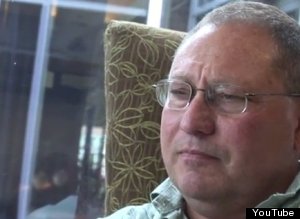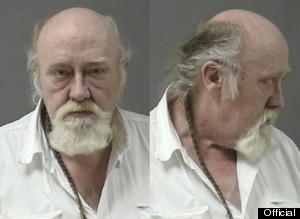
by PETE YOST and GENE JOHNSON / Associated Press
Posted on August 29, 2013 at 10:42 AM
Updated today at 5:15 PM
In a sweeping new policy statement prompted by pot legalization votes in Washington and Colorado last fall, the department gave the green light to states to adopt tight regulatory schemes to oversee the medical and recreational marijuana industries burgeoning across the country.
The action, welcomed by supporters of legalization, could set the stage for more states to legalize marijuana. Alaska is scheduled to vote on the question next year, and a few other states plan similar votes in 2016.
The policy change embraces what Justice Department officials called a "trust but verify" approach between the federal government and states that enact recreational drug use.
Document: Read guidance from the Justice Department about Washington's pot law
In a memo to all 94 U.S. attorneys' offices around the country, Deputy Attorney General James Cole said the federal government expects that states and local governments authorizing "marijuana-related conduct" will implement strong and effective regulatory and enforcement systems that address the threat those state laws could pose to public health and safety.
"If state enforcement efforts are not sufficiently robust ... the federal government may seek to challenge the regulatory structure itself," the memo stated.
The U.S. attorney in Colorado, John Walsh, said he will continue to focus on whether Colorado's system has the resources and tools necessary to protect key federal public safety interests.
Colorado Gov. John Hickenlooper said the state is working to improve education and prevention efforts directed at young people and on enforcement tools to prevent access to marijuana by those under age 21. Colorado also is determined to keep marijuana businesses from being fronts for criminal enterprises or other illegal activity, he said, and the state is committed to preventing the export of marijuana while also enhancing efforts to keep state roads safe from impaired drivers.
Under the policy, the federal government's top investigative priorities range from preventing the distribution of marijuana to minors to preventing sales revenue from going to criminal enterprises, gangs and cartels and preventing the diversion of marijuana outside of states where it is legal under state law.
Read More Here
*********************************************************
How These 6 People -- And You -- Have Already Been Screwed By Obama's War On State Weed Laws
The Huffington Post | By Matt Sledge & Nick Wing Posted: 08/29/2013 3:11 pm EDT | Updated: 08/29/2013 7:45 pm EDT
Many marijuana reform advocates are hopeful, but they've had their hopes dashed before.
Before he was elected, President Barack Obama said he would stop federal raids on growers operating under state medical marijuana laws. Marijuana reform advocates were further cheered by a 2009 DOJ memo that said the government wouldn't use its considerable law enforcement and prosecutorial resources to target those who complied with state law.
Despite the friendly words and the welcome memo, the raids rolled on. The Drug Enforcement Agency and prosecutors claimed they were targeting medical marijuana growers and dispensary owners operating in violation of state laws. But because a Supreme Court ruling bars marijuana users from using the defense that they are following state laws, that side never gets heard in court. And even if some dispensary owners were breaking the law, advocates argue, prison is far too high a price to pay for a consensual crime.
All along the way, every year since Obama was inaugurated in 2009, the casualties of the war on weed have kept piling up: Growers, patients and you, the American taxpayer.
Jerry Duval

Aaron Sandusky

(Photo via YouTube)
While medical marijuana is legal in California, federal prosecutors painted Sandusky's business as a "criminal enterprise" that exploited "his customers' good-faith search for pain relief."
Prior to his arrest, Sandusky had received a letter from the U.S. Attorney's Office warning that his stores violated federal law. Sandusky responded by closing two of them, but the following month, federal agents raided his remaining dispensary. They seized marijuana plants and $11,500 in cash, effectively wiping out Sandusky's business.
Richard Flor

Flor was given five years in federal prison -- five years that turned out to be a death sentence. Afflicted with dementia and depression, the 68-year-old's lawyer asked federal U.S. District Judge Charles Lovell to release his client from a private prison while they appealed his sentence.
"He is in extreme pain and still is not being given round-the-clock care as is required for someone with his medical and mental conditions," his lawyer wrote. "It is anticipated he will not long survive general population incarceration."
Flor's lawyer was right. Flor died in a Las Vegas just weeks after the judge denied the request.
"I was sorry to learn of the passing of Mr. Flor," Lovell wrote in a statement afterward. "Judicial ethics prohibit further response."
Read More Here
*********************************************************
By Jennifer Oldham - Aug 28, 2013 1:01 AM CT
“The only way we have to pay our bills is transporting cash from point A to point B,” said DeAngelo, executive director of the medicinal marijuana collective based in Oakland, California, with 128,000 patients.
DeAngelo isn’t alone. Several large marijuana dispensaries in California and Colorado received similar notices from their armored vehicle services, said Steve Fox, director of government relations for the Washington-based National Cannabis Industry Association.
The U.S. Justice Department declined to comment on the matter, Ellen Canale, a spokeswoman, said by e-mail in response to repeated requests. The U.S. Drug Enforcement Administration referred questions to the Justice Department, its parent agency.
The end of armored-car service to some marijuana dispensaries underscores ongoing tension between federal law, under which cannabis remains illegal, and laws in 20 states and the District of Columbia that legalized medical marijuana consumption, plus measures in Colorado and Washington that allow those 21 and older to possess up to an ounce of pot.
Federal Response
Attorney General Eric Holder hasn’t provided a federal response to the laws in Washington and Colorado that will also allow retail sales of pot next year.The U.S. Senate Judiciary Committee will hold a hearing on the conflicts between state and federal marijuana laws on Sept. 10, Chairman Patrick Leahy, a Vermont Democrat, announced Aug. 26.
Federal laws bar banks from offering accounts to pot shops, forcing medical marijuana firms to pay their sales taxes and other bills in cash. Cannabis businesses also are unable to obtain credit cards.
DeAngelo’s car service, Dunbar Armored Inc., didn’t return calls and messages for comment.
Fox, of the cannabis trade group, said that other medical marijuana dispensaries affected by the issue didn’t want to come forward because of security concerns.
Read More Here
*********************************************************
People Killed By The War On Drugs
Kathryn Johnston
In November 2006, a narcotics team from the
Atlanta
Police Department apprehended a man with a known drug history. They
planted marijuana on him, then threatened to arrest him unless he gave
them information about where they could find a supply of illegal drugs.
He gave them the address of 92-year-old Kathryn Johnston. Instead of
finding an informant to make a controlled buy from the address, the
officer instead lied on the search warrant, inventing an informant and
describing a drug buy that never happened. 

Ashley Villarreal
Ashley Villarreal, 14, was shot and killed by DEA agents in 2003 in San Antonio.Ashley was attempting to show off her driving skills to family friend David Robles by taking a drive around the block. But at the time, the DEA was investigating Ashley's father, Joey Villarreal, for drug trafficking. As Ashley pulled out of the driveway of the home where Joey Villarreal's mother and Ashley lived, the federal agents were in the process of staking out the house.
Later explaining that they had mistaken Robles for Ashley's father, the agents boxed in the vehicle the girl was driving. They claimed she then continued driving toward them, at which point they opened fire, shooting her in the back of the head. Robles and several witnesses said the agents never identified themselves, and that Ashley posed no threat, given that her vehicle was already boxed in. The police found no drugs or weapons in the vehicle, or in the house, nor did they find any evidence that Ashley's father had been using the house for drug trafficking.
Nevertheless, the agents were cleared of any wrongdoing. Joey Villarreal was later arrested, convicted of drug charges, and sentenced to 19 years in prison.
Source: Pete Brady, "The Murder of Ashley," Cannabis Culture, October 8, 2003.

Johnathan Ayers
In
September 2009, Johnathan Ayers, a 28-year-old Baptist pastor from
Lavonia, Ga., was gunned down by a North Georgia narcotics task force in
the parking lot of a gas station. Police would later acknowledge he was
not using or trafficking in illicit drugs. Instead, Ayers had been
ministering to Johanna Barrett, the actual target of the investigation.According to an interview Barrett gave to a North Georgia newspaper shortly after Ayers' death, on the day he died the pastor had seen her walking near a gas station on her way back to an extended-stay motel where she lived with her boyfriend. Ayers had known Barrett for a number of years, and offered her a ride back to the motel. He also gave her the money in his pocket, $23, to help pay her rent.
The police were trailing Barrett at the time. But instead of apprehending her at the motel, they instead followed Ayers, who they saw hand Ayers cash.
They followed Ayers to a nearby gas station where he withdrew some money from an ATM. Shortly after he got back into his car, a black Escalade pulled up behind him. Three officers, all undercover, rushed Ayers' vehicle and pointed their guns at him. The pastor panicked and attempted to escape. As he backed out, Ayers' car grazed one police officer. Officer Billy Shane Harrison then opened fire, shooting Ayers in the stomach. Ayers drove for another thousand yards before crashing his car. He died at the hospital. His last words to his family and medical staff were that he thought he was being robbed. The police found no illicit drugs in his car.
A grand jury later declined to indict Harrison for any crime. District Attorney Brian Rickman praised the Georgia Bureau of Investigation for going to "very extraordinary lengths" to conduct a fair investigation. But a civil suit suggested otherwise. The complaint alleged that Harrison wasn't authorized to arrest him. On the day Ayerswas killed, Harrison had yet to take the firearms training classes required for his certification as a police officer. In fact, Harrison had no training at all in the use of lethal force.
Harrison's lack of training was later confirmed by local TV station WSB-TV and, after the fact, by the GBI. Harrison was suspended. The civil suit also alleged prior disciplinary problems with Harrison and another officer involved in her husband's death, including alleged drug use.
Sources: Rob Moore, "Case File: Ayers Feared a Robbery," The Northeast Georgian, December 29, 2009; Steve Huff, "Did a Good Dead Lead Pastor Jonathan Ayers to his Death?" September 10, 2009; Jessica Waters, "GBI Findings Outlined," The Toccoa Record, December 28, 2009; Denise Matthews, "Grand Jury Declares Ayers Shooting Justified," Franklin County Citizen, December 24, 2009; Charlie Bauder, "District Attorney Defends Investigation of Preacher's Death," Anderson Independent-Mail, December 22, 2009; Estate of Jonathan Ayers v. Officer Billy Shane Harrison, et al., complaint, filed in the United States District Court for the Northern District of Georgia, March 15, 2010; "Arrest Made in Pastor Death Case," Actions News 2, WSB-TV Atlanta, June 18, 2010; Rob Moore, "NCIS Officer on Leave Pending Probe," The Toccoa Record, March 29, 2010; Jessica Waters, "Ayers Federal Civil Case Updated," The Toccoa Record, January 6, 2011.

Raids on Legal Dispensaries
Los Angeles Times 3/14/2011
The Huffington Post 7/25/2013
The Inquisitr 7/25/2013








No comments:
Post a Comment
Hello and thank you for visiting my blog. Please share your thoughts and leave a comment :)